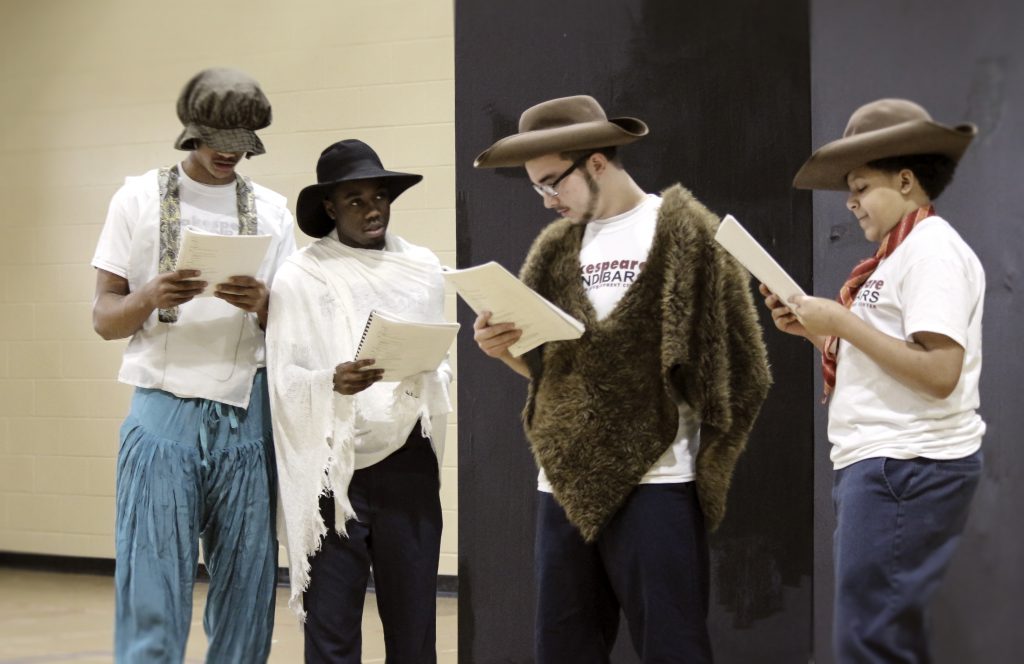Kentucky Dept. of Juvenile Justice
Audubon Youth Development Center – Louisville, KY
Multidisciplinary Juvenile Arts Program

Shakespeare Behind Bars believes it is imperative to create transformational programs that provide incarcerated and at risk youth with the tools they need to work towards a future outside correctional institutions and thereby reduce the rate of youth who will commit crimes that could lead to their spending their adult lives behind bars. The Shakespeare Behind Bars juvenile programs employ the same vision, mission, values, and techniques that have proven successful in the adult program founded in 1995 at the Luther Luckett Correctional Complex in LaGrange, KY.
SBB Facilitators Matt Wallace, Keith McGill, and Kathi Ellis led SBB multidisciplinary arts programs at Audubon Youth Development Center. All residents/students had the opportunity to volunteer to participate and join the SBB ensemble. Over the course of program, students participated in daily ensemble-building and conflict resolution work to create a safe circle for participants. The ensemble explored text, themes, and issues from Shakespeare’s plays through discussion, reflection, exercises, and performance. Visiting specialists contributed to the program in the areas of visual art/art therapy, prejudice reduction, making music, playwriting, costume design, scenic design, and live theatrical performance.
Through special permission from the Department of Juvenile Justice and the Department of Corrections, juvenile participants posed written questions to adult inmates in the Luther Luckett Correctional Complex SBB program and has dialogue and mentoring opportunity in the form of shared writing.
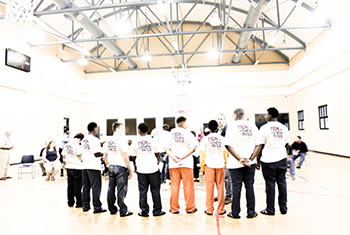
The process culminated in a final sharing for peers, teachers, staff, family members, and Jefferson County Public Schools, Justice Cabinet, Department of Juvenile Justice, and Department of Corrections officials and staff members.
Program evaluation included observation and evaluation by a licensed psychologist.
Audubon Youth Development Center closed in 2018. It provided educational opportunities for students who have been adjudicated by Kentucky courts as youthful offenders or seriously delinquent and committed to the Department of Juvenile Justice for treatment.
Related Links:
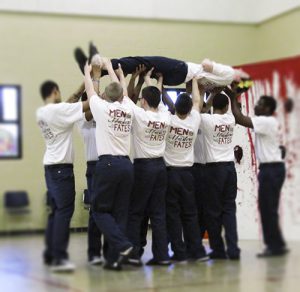
Post Residency Evaluation and Surveys
Selected observations from final evaluation by Meg Smedly, Ph.D, licensed psychologist:
- The group as a whole seemed much more confident and comfortable
- More team work and less distractibility
- Less criticism unless someone wasn’t taking the task seriously (laughing and giving each other ideas instead of
- criticizing or making fun of each other)
- Much better overall communication, including non-verbal communication
- Majority were focused and proud of their accomplishments
- More interest and friendlier overall, quick to volunteer and participate
- Good eye contact and less embarrassment
- Some students observed helping those that couldn’t read well and others displaying increased courage to ask for help
- Some fighting about chairs but able to get over such disagreement faster
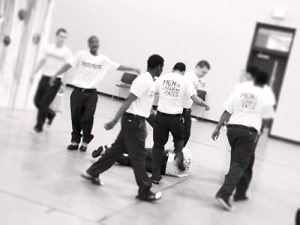 Individual statements about what was learned/gained from participation in SBB in closing question:
Individual statements about what was learned/gained from participation in SBB in closing question:
“Confidence”
“Humor, responsibility and enthusiasm”
“The feelings I had on stage were better than any high.”
“Doing acting so I stay out of here.”
“Teamwork. Better coping skills.”
“I got over my nerves and gained confidence.”
“Experience working with peers; Confidence.”
“I accomplished and finished something”
“Pride in what I do.”
“Courage. To be brave & do what I’m supposed to do.”
“I was much more focused; being able to complete something without complaining.”
“Pride. It took me a long time to participate in something like this. Something new.”
“Better instincts. I learned when to run and get away from danger. Good peer interaction.”
Student Participant Post-Residency Survey Results
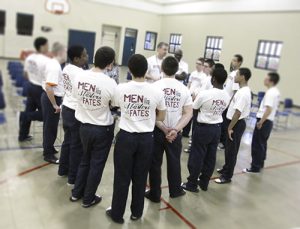
93% of participants agreed with the following statements:
- I am less likely to commit a crime after completing this program.
- I have developed decision-making, problem solving, & creative thinking skills.
- I am an empathetic, compassionate person.
- I am an artistic person.
- I am going to be a positive contributing member of society.
- I am interested in Shakespeare and the themes contained.
- I have strong literacy skills (reading, writing, and oral communication)
- The program helped me improve my reading skills.
- We all worked together as a team during the program.
86% of participants agreed with the following statements:
- I am responsible for the crime or crimes I have committed.
- I enjoy learning.
- I will use what I learned in this program in the future.
- I have a positive attitude.
- I know how to resolve conflict peacefully.
- I have a positive self-image.
- I am a responsible member of a group, community, and family.
79% of participants agreed with the following statements:
- I got in less fights/altercations during the time I participated in this program.
- This program helped me learn to deal better with conflict.
- The program helped me express my thoughts and feelings more clearly.
- I like to help others.
- I express anger constructively. I can accept criticism from others

